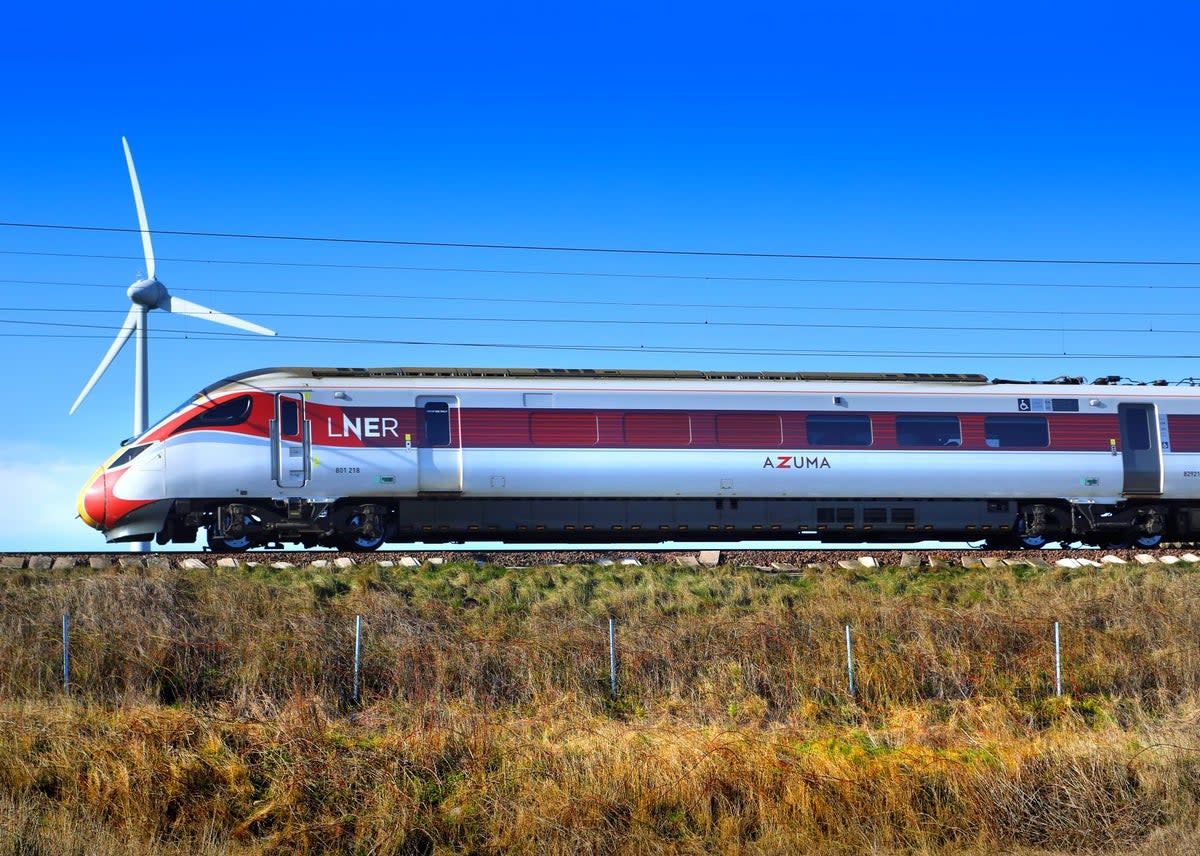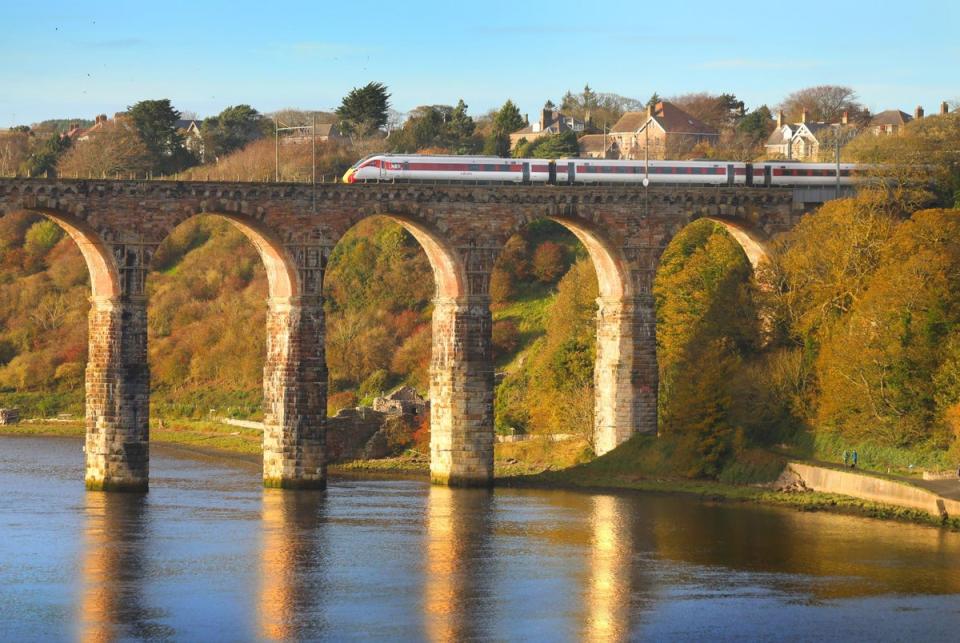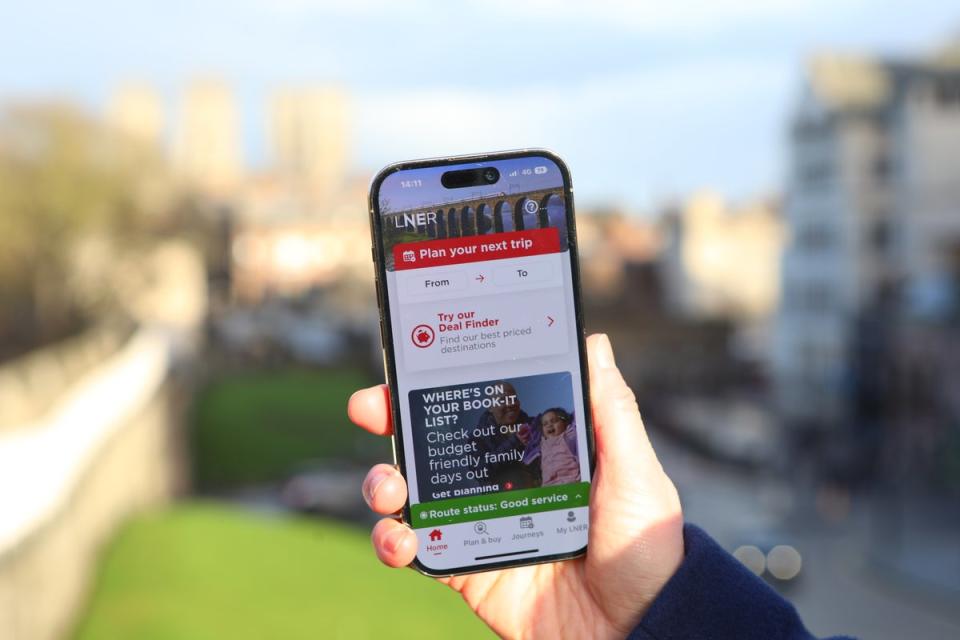Victory as simpler train tickets trial is extended on LNER

The trial of “simpler” ticketing that will make the railways cheaper and more flexible for passengers is to be expanded across a major long-distance route to and from London, the Standard can reveal.
London North Eastern Railway, which carries more than 20 million passengers a year, is to widen a “successful” pilot scheme that tackles the problem of passengers shunning the railways because they are confused by the range of fares.
LNER has trialled the use of “single leg pricing” since 2020 on its routes between King’s Cross and Edinburgh, Leeds and Newcastle.

Now the Government is about to give the go-ahead to expand the initiative across most of the rest of its East Coast Main Line services.
This will benefit London commuters travelling from Peterborough – the busiest section of the LNER route map – and those travelling to cities such as York and Durham.
It will also pave the way for the introduction of single leg pricing by other firms – and eventually the launch of airline-style “demand-led” pricing, where the cost of a ticket varies according to the number of passengers wanting to travel on each train.
The expansion of single leg pricing, promised by Transport Secretary Mark Harper in February, is set to be formally announced in the coming weeks.
The use of “single leg pricing” removes the anomaly of some single tickets being almost as expensive as a return ticket. It means passengers can more easily choose when to travel, in the knowledge that the fare is offering value for money.

Sources close to the plan told the Standard that single leg pricing allowed passengers to “mix and match” their fares to find the best value tickets at the time they want to travel.
One said: “We think it’s a big win because a lot of people are deterred by the complexity of fares. This next step will basically reduce the number of fares available, and types of tickets, by more than half. We are massively simplifying the fares.”
Another said: “It gives that flexibility and visibility to fares that isn’t otherwise there. If you got an ‘Anytime Return’ then you were tied to certain trains.”
Other than the introduction of Contactless Pay As You Go across many suburban services in and around London, rail ticketing has gone unreformed since the mid-1990s.
The new system should offer savings for commuters travelling fewer than five days a week or working flexible hours, according to the Rail Delivery Group.
At present, there are more than 55 million fares, often sold in “restrictive” bundles or prices.
Research by the Rail Delivery Group found that more than one in three people for whom the train is an option were put off by the complexity of fares. Eight out of 10 backed changes to the current system.
The LNER trial scrapped Anytime Return, Super Off-Peak Return and Off-Peak Return tickets and replaced them with Anytime Single, Super Off-Peak Single and Advance Single tickets.
At the time, people travelling between London to Edinburgh who bought a ticket at the station were charged £146.40 for a Super Off-Peak Single ticket or £147.40 for a Super Off-Peak Return ticket. But under single leg pricing, the cost of a single fell to £73.70.
Research by Ipsos Mori, commissioned by LNER, found 61 per cent of customers were in favour of single leg pricing being extended across all LNER routes.
Single leg pricing prevents passengers buying an open return when there are cheaper alternatives.
“It’s that transparency, and the confidence that you know what you have got,” a source said. “You are not sitting there panicking that you are on a peak service when you should be on off-peak, or vice versa.”
Other reforms include LNER becoming the first train company to make tickets available six months in advance – with the aim of extending this to a year.

Its “deal finder” allows passengers to set a maximum budget for their journey - and then receive a series of options for different days out.
In a separate initiative, Avanti West Coast has launched “low cost superfare” tickets enabling passengers to travel between Euston and Birmingham for £12 or Euston to Preston for £22 – in return for not knowing until 24 hours before they travel the train they will be on.
TransPennine Express and Lumo trains could be the next companies to trial single leg pricing, it is understood. Wider adoption by the rail industry will follow when Great British Railways gains control of ticketing around 2025.


